Company Cyber Security Posture
NANA
NA Company Details
NA
NA
NA
NA
NA
NA
Scan still pending
NA
NA
Between 200 and 800
This score is AI-generated and less favored by cyber insurers, who prefer the TPRM score.
 NA Global Score
NA Global Score.png)

Company Scoring based on AI Models
| Model Name | Date | Description | Current Score Difference | Score |
|---|---|---|---|---|
| AVERAGE-Industry | 03-12-2025 | This score represents the average cybersecurity rating of companies already scanned within the same industry. It provides a benchmark to compare an individual company's security posture against its industry peers. | N/A | Between 200 and 800 |
Company Cyber Security News & History
| Entity | Type | Severity | Impact | Seen | Url ID | Details | View |
|---|
Company Subsidiaries

NA
Access Data Using Our API

Get company history
.png)
NA Cyber Security News
Fraud attempts on Access Bank increased in 2024, but losses reduced
Access Bank cut fraud losses to ₦1.69bn in 2024, but attempted fraud cases surged past 11000—highlighting the growing scale of digital ...
Access Bank Nigeria partners Integral to boost FX trading capabilities
Access Bank Nigeria has teamed up with currency technology provider Integral to “help deliver on its regional expansion ambitions”.
Access Holdings spends big on tech; cuts fraud losses by 73%
Analysts say the surge in tech spend may have slashed fraud losses by 73% from ₦6.15 billion ($3.8 million) to ₦1.64 billion ($1.0 million).
Nigeria’s Access Bank partners MFS Africa for outward remittances
Access Bank, Nigeria's largest bank, has partnered with digital payments enabler MFS Africa to expand its AccessAfrica remittance corridors.
Five banks’ N248bn tech investment underplays cybersecurity concern
Five commercial banks plan to invest N248.21 billion in technology upgrades over the coming months, but cybersecurity appears to be ...
As global financial fraud hits $485bn, Access Holdings shows Africa how to fight back
Financial fraud worldwide has led to staggering losses, with the most recent reports showing a global fraud cost of over $485 billion in 2023.
City Bank data breach: Client financial statements sold on underground forums
City Bank PLC has had sensitive client financial statements exposed and sold on underground hacking forums, according to a recent blog post.
Top 10 Banks in Africa With the Best Digital Banking Services
Top 10 Banks in Africa With the Best Digital Banking Services · 1. Standard Bank Group (South Africa) · 2. FirstRand (South Africa) – with its ...
Securing Nigeria’s wealth from cyber attacks
Cybercrime attacks and security breaches on Nigerian banks have increased dramatically over the years. While the fraud cases reported last.

NA Similar Companies
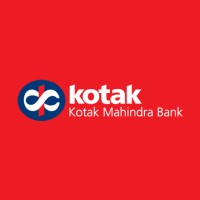
Kotak Mahindra Bank
About Kotak Mahindra Group: Established in 1985, the Kotak Mahindra Group is one of India’s leading financial services conglomerates. In February 2003, Kotak Mahindra Finance Ltd. (KMFL), the Group’s flagship company, received a banking license from the Reserve Bank of India (RBI). With this, KMF
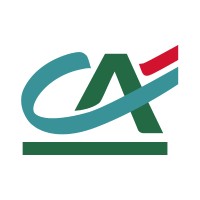
Crédit Agricole Italia
Crédit Agricole Italia fa parte del grande Gruppo internazionale Crédit Agricole: un gruppo bancario tra i più solidi nel panorama internazionale e presente in 46 Paesi del mondo, con 53 milioni di Clienti. Il Gruppo Crédit Agricole in Italia conta 6 milioni di Clienti attivi e circa 16.200 collabor

First Citizens Bank
First Citizens Bank helps personal, business, commercial and wealth clients build financial strength that lasts. Headquartered in Raleigh, N.C., First Citizens has built a unique legacy of strength, stability and long-term thinking that has spanned generations. First Citizens offers an array of gene
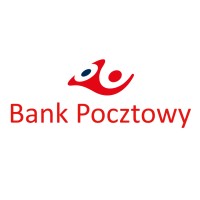
Bank Pocztowy SA
Bank Pocztowy to bezpieczny, polski bank mogący pochwalić się jedną z najszerszych sieci dostępu do usług finansowych w Polsce: tradycyjnych - za sprawą ok. 4700 placówek Banku i Poczty Polskiej oraz nowoczesnych - dzięki naszej nowej cyfrowej marce EnveloBank, która już w kilka miesięcy
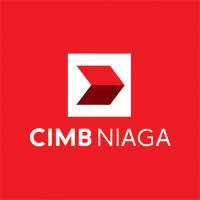
CIMB Niaga
CIMB Niaga was established as Bank Niaga in 1955. CIMB Group holds around 97.9% of the stakes in CIMB Niaga (including PT Commerce Kapital 1.02%). The Bank offers a comprehensive suite of both conventional and Islamic banking products and services, through an expanding delivery channel network of 91
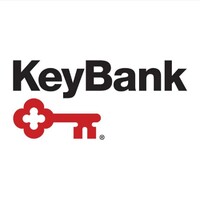
KeyBank
At KeyBank we’ve made a promise to our clients that they will always have a champion in us. To deliver on our promise, we’re committed to building a team of engaged employees who do the right thing for our clients and shareholders, and help them achieve financial wellness each and every day. Headqu

Frequently Asked Questions
Explore insights on cybersecurity incidents, risk posture, and Rankiteo's assessments.
NA CyberSecurity History Information
How many cyber incidents has NA faced?
Total Incidents: According to Rankiteo, NA has faced 0 incidents in the past.
What types of cybersecurity incidents have occurred at NA?
Incident Types: The types of cybersecurity incidents that have occurred include .
Additional Questions
What Do We Measure?
















Every week, Rankiteo analyzes billions of signals to give organizations a sharper, faster view of emerging risks. With deeper, more actionable intelligence at their fingertips, security teams can outpace threat actors, respond instantly to Zero-Day attacks, and dramatically shrink their risk exposure window.
These are some of the factors we use to calculate the overall score:
Identify exposed access points, detect misconfigured SSL certificates, and uncover vulnerabilities across the network infrastructure.
Gain visibility into the software components used within an organization to detect vulnerabilities, manage risk, and ensure supply chain security.
Monitor and manage all IT assets and their configurations to ensure accurate, real-time visibility across the company's technology environment.
Leverage real-time insights on active threats, malware campaigns, and emerging vulnerabilities to proactively defend against evolving cyberattacks.




